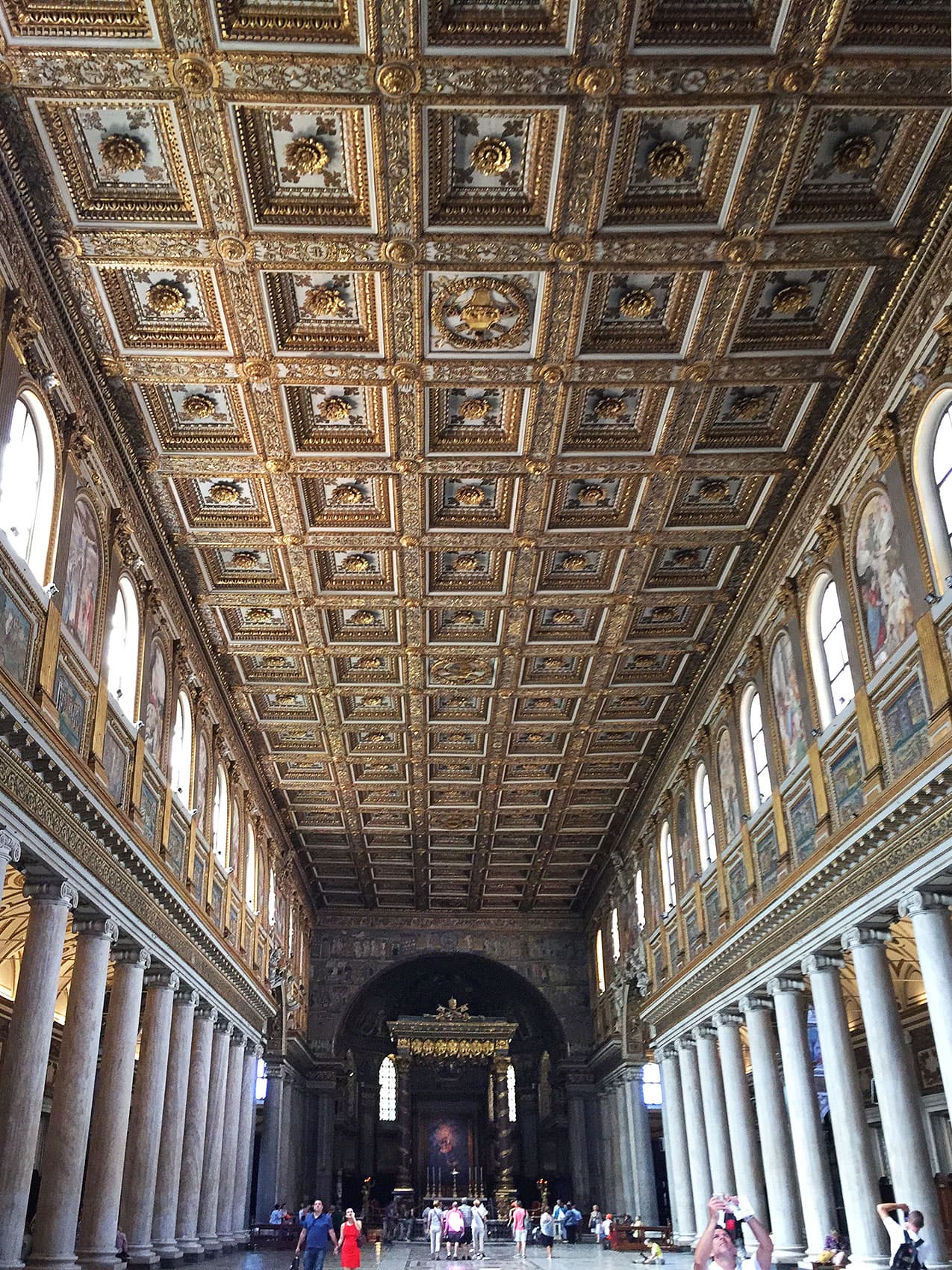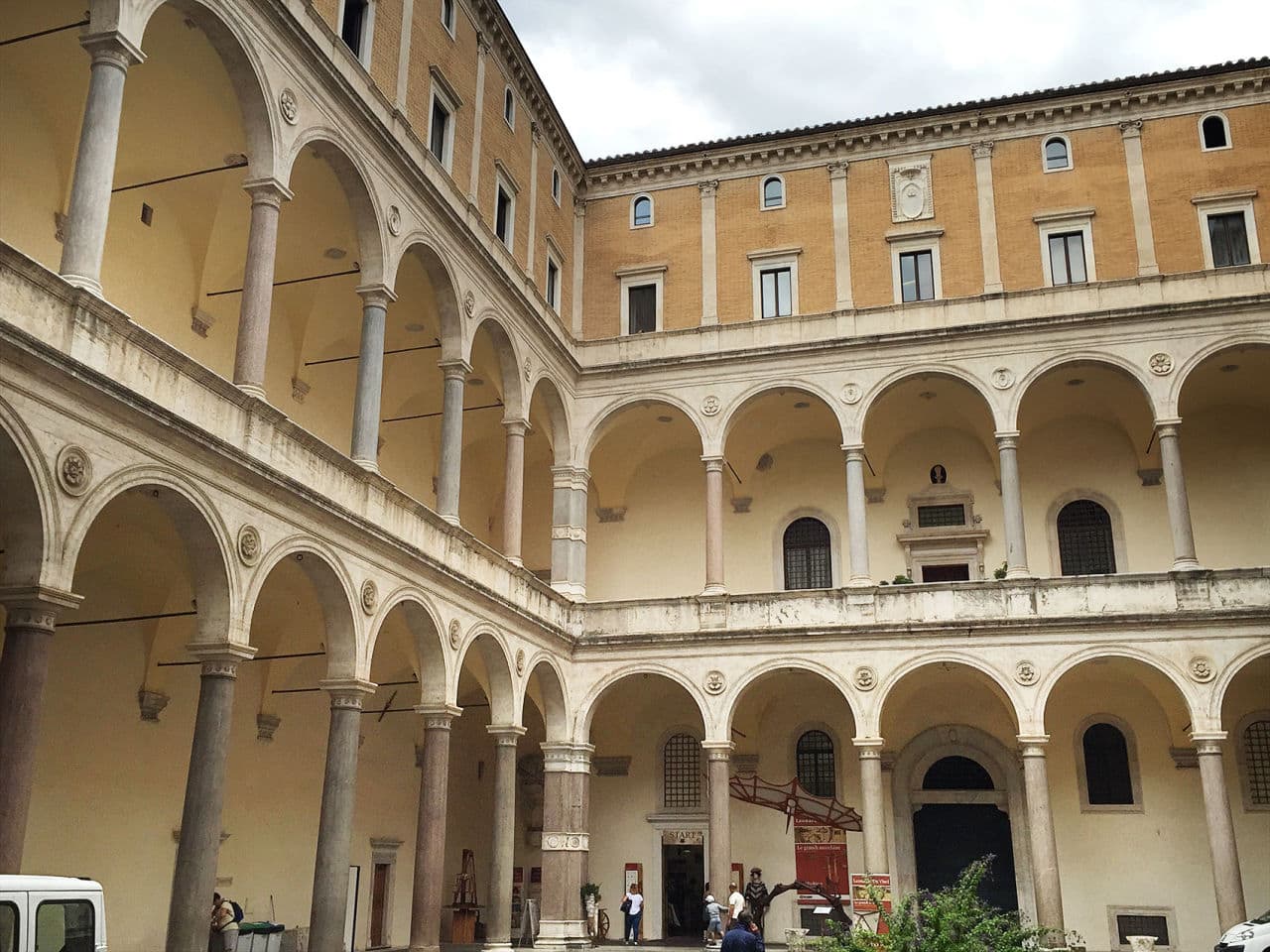Advertisement
Where Is Cardinal Bernard Law Now?
Resume
Church officials say that Pope Francis is likely to meet with victims of sexual abuse by priests when he comes to America this week -- a sign of continuing turmoil and mistrust among Catholic parishioners following a series of scandals. And when critics call for more transparency and accountability, it's Cardinal Bernard Law they often point to.
Law was forced to resign as bishop of the Archdiocese of Boston after a series of stories by a team of investigative reporters at The Boston Globe found victims and uncovered documents showing that church authorities had protected pedophile priests from prosecution — a story that will be revisited by the release next month of a new movie called "Spotlight."
But despite the disgrace that befell Cardinal Law in Boston, he found a comfortable and influential second career at the Vatican.
'Lied Through His Teeth'
The fall of Law began with a press conference he called in mid-January 2002 — one week after a story published by The Boston Globe revealed that he had protected pedophile priests in the Boston Archdiocese.
The scene was Nixonian. A favorite of Pope John Paul II and a close friend of both Bush presidents, Cardinal Law was a red-hatted power broker in Washington and Rome — the two capitals that counted most. But he was under siege — and his assertions were bold.
"There is no priest in an assignment in this archdiocese whom we know to have been guilty of child abuse," he said in response to questions.
The Globe's Spotlight team of investigative reporters had revealed that Law and other bishops before him had covered up the priests' crimes against children, then moved the priests to new parishes and, as it turned out, new victims.
But during that press conference, the cardinal insisted not once, but three times that it was all in the past. Not a pedophile priest was still in service.
"When he made those statements, we knew they were false," says Globe editor Walter Robinson, who was on the team that uncovered the abuse.
The Globe had a list of accused priests who were still in service and a wave of documents would shred what was left of Law's credibility.
“He had literally stood before the archdiocese and lied through his teeth."
Boston Globe reporter Michael Rezendes
"He had literally stood before the archdiocese and lied through his teeth," Globe reporter Michael Rezendes says.
A Dramatic 'Fall From Grace'
Like Nixon, Law said he wouldn't go. But eventually he had to — a grand jury was afoot and both priests and parishioners were demanding he step down.
"He was seen as the most powerful cardinal of the most powerful Catholic Church in the world, meaning the United States, and to fall from that to where he ended up is the most dramatic fall from grace I've ever personally witnessed," says Vatican analyst John Allen, who reports for The Boston Globe.
And yet, in a church where all roads lead to Rome, his catastrophic administration and disgrace in Boston was treated more like a flare-up in the provinces. The newspaper of the Vatican Congregation of Bishops put his resignation on page 17.
A poster boy for the sexual abuse scandal in one country, Law came to another, the Vatican, in May 2004, where protected and assisted by friends and allies he actually became more influential than he had ever been in Boston.
Pope John Paul II named Law archpriest of one of Rome's four papal basilicas, and its most magnificent: Santa Maria Maggiore, the first church dedicated to Mary.
A few months later, Law presided at the anniversary of the basilica's dedication more than 16 centuries earlier.

Above the cardinal and centuries of priceless art, white flower petals dropped from a ceiling gilded in gold. If there was a trace of official embarrassment over Law's presence, it was not apparent.
"There are plenty of monasteries that Cardinal Law could have been sent to where he didn't have a position, where he wasn't allowed to be a Vatican official and where it was clearly communicated that he was to live a life of prayer and penance for the crimes that he allowed to be committed against the hundreds if not thousands of children in the Archdiocese of Boston," said Patrick Wall a former monk, former parish priest and a canon lawyer who works on civil cases filed against accused pedophiles.
"Cardinal Law was the last gasp of an old regime, which said even when cardinals have engaged in spectacular failures somehow their dignity and their status has to be protected."
John Allen, Vatican analyst for The Boston Globe
Instead, Law, who had only given up his position as archbishop of Boston, was allowed to keep his seat in the College of Cardinals. That meant keeping his seat in each and every one of eight Vatican Commissions, including the single most important department of all: the Congregation of Bishops.
And freed from the administrative and fundraising duties he once had in Boston, Law could devote all his time and influence to grooming a new generation of bishops as conservative as he was.
Law became the maker of American bishops. Ray Flynn, a former ambassador to the Vatican, can rattle off five or six of Law's personal staffers in Boston who Law got appointed bishops. "He had a lot of power and a lot of friends at the Vatican," Flynn says.
That Law could exert such influence for so long was proof, critics said, the Vatican was not holding people to account for what they had done or failed to do.
"Cardinal Law was the last gasp of an old regime, which said even when cardinals have engaged in spectacular failures somehow their dignity and their status has to be protected," the Globe's Allen said.
'Not A Chance'

Law is about to turn 84 — he's grown old in Rome, listening to Italian church bells.
Now retired, he can no longer cast a vote to elect a new pope or to recommend the appointment of new bishops. But he still wears a red hat and, by all accounts, lives comfortably in the earliest Renaissance palace in Rome — the Palazzo della Cancelleria, or the Papal Chancellery.
I recently went to see him, on my way home from the Venice Film Festival, where "Spotlight" premiered. I was curious if Law had any reflections to make.
It's not hard to find him — he's often seen at diplomatic receptions, social events and conferences. He's not in hiding. He's in the phone book.
But according to people who know him, the one thing he won't talk about is what happened in Boston. He says he will leave that up to history.
Wall, the former priest and canon lawyer, has a different interpretation.
"To be honest with you he has potential criminal liability and whatever statements he makes are going to be statements and interests that could be used in potential civil cases moving forward," Wall said. "So I don't think you'll hear him again, ever."
I called Law's longtime secretary from Boston, who had rejoined Law in 2005 after he got a lifetime appointment to the Vatican — another sign of Law's status. He told me, "Not a chance."
So the next morning I decided to call on the cardinal myself.
Outside Pallazzo della Cancelleria, I gave security my name, and they made the call to the cardinal, whom I've interviewed many times in the past.
"Boeri," I tell the woman at the desk. She conveys it to the security guard standing beside her: "Boeri." And he sings it to the person on other end of the line: "Boeri."
A phone conversation ensues in Italian. Then the man at the desk calls over another guard who speaks some English.
I get the translation simultaneously. It comes in one world in Italian — "Occupato." But three words in heavily accented English — "He's a be-zee."
There was nothing about coming back another time.
Correction: An earlier version of this post misspelled the Italian word for "busy," and also misspelled the word "canon."We regret the errors.
This article was originally published on September 22, 2015.
This segment aired on September 22, 2015.
